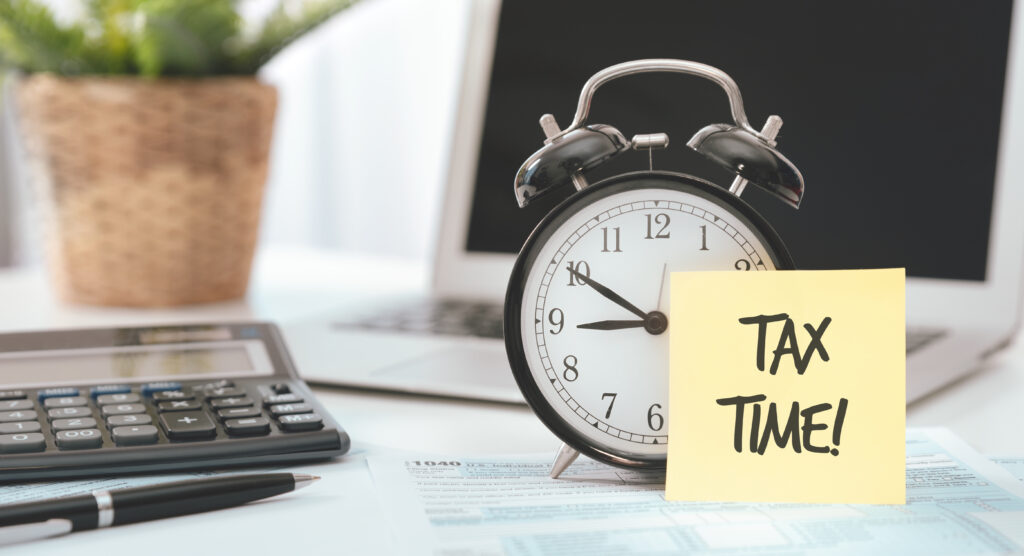Let’s face it: when it comes to financial freedom, most people think it’s a complicated, long-term goal. They think it takes mountains of spreadsheets, complicated investments, and years of careful saving. But what if you could make small steps every day—tiny steps that only take 5 minutes each and still make a big impact on your financial future? Like 5-minute abs, only for building financial muscle!
It may sound too good to be true, but we’re not making this up. By adding small daily financial habits into your routine, you can steadily build toward financial freedom. These bite-sized actions add up over time, and before you know it, you’ll be in control of your money instead of your money controlling you. (Show that money who’s in charge!)
Here’s how you can take just 5 minutes each day to move toward financial freedom—without feeling overwhelmed.
Day 1 – Start tracking your spending
If you don’t know where your money’s going, how can you start saving or investing it? The first step to financial freedom is knowing how much you spend and on what. Luckily, you don’t need to dedicate hours to this process.
What to do: Spend 5 minutes logging your expenses for the day. You can jot them down in a notebook, type them into a simple spreadsheet, or use an app like Brigit. The goal here is to track every dollar you spend—whether it’s your morning coffee, lunch out, or an online splurge.
Payoff: By the end of the month, you’ll have a clearer picture of your spending habits. This awareness is the first step toward cutting out unnecessary expenses and saving more!
Day 2 – Automate one bill or payment
Automation is one of the easiest ways to simplify your finances and avoid late fees or missed payments. And guess what? Setting up automatic payments only takes a few minutes.
What to do: Pick one recurring bill—like your rent, utilities, or phone bill—and set up an automatic payment through your bank or the provider’s website. Most banks and apps have an easy auto-pay feature.
Payoff: Not only will you avoid late fees, but automating payments frees up mental space and makes sure you’re always on top of your bills—automatically building better financial habits.
Day 3 – Find a small win to cut back
You don’t need to overhaul your budget overnight to start saving money. Instead, focus on finding one small area where you can cut back.
What to do: Spend 5 minutes identifying a single expense you can reduce or eliminate. Maybe it’s skipping a few coffee runs a week (making it at home instead can save you a lot), canceling that magazine subscription you forgot about, or bringing lunch from home one extra day.
Payoff: Over time, these small cuts add up to significant savings. Even if you save just $5 a day, that’s $150 a month back in your pocket!
Day 4 – Check your bank accounts
Keeping an eye on your bank account doesn’t have to be a daily obsession, but it should be part of your regular routine. A quick check-in helps you stay on top of your finances and catch any mistakes or fraudulent charges.
What to do: Take 5 minutes to log in to your bank accounts and review your balances. Make sure there are no unexpected fees or withdrawals. If you see any transactions you don’t recognize, follow up right away.
Payoff: Regularly checking your accounts helps prevent overdrafts, catches fraudulent activity early, and keeps you more engaged with your money.
Day 5 – Review your subscriptions
It’s easy to sign up for streaming services, meal kits, or beauty boxes and then forget you’re still paying for them months later. Subscriptions can quickly add up, draining your budget without you even realizing it.
What to do: Spend 5 minutes reviewing your current subscriptions. Cancel any you don’t use or need.
Payoff: You’ll be amazed at how much you can save by cutting out unused subscriptions. Freeing up even $20 a month means $240 back in your budget by the end of the year.
Day 6 – Set up a savings goal
Having a specific savings goal in mind helps you stay motivated to save. Whether it’s an emergency fund, a vacation, or a down payment on a house, putting a target in place is the first step.
What to do: Use a savings calculator or app to set a clear, realistic savings goal. Determine how much you want to save, by when, and how much you’ll need to save each month to hit that target.
Payoff: Setting and tracking savings goals makes the process of building wealth feel much more achievable and motivating. Plus, it ensures you’re saving with purpose.
7 – Transfer $5 (or more) to savings
We all know that saving is important, but the hardest part is getting started. Good news: you don’t have to save hundreds of dollars all at once. Just start small!
What to do: Transfer $5—or whatever amount you can manage—to your savings account. Make it a daily habit, and by the end of the month, you’ll have a growing savings fund without even feeling the pinch.
Payoff: Small, consistent deposits grow over time. Before you know it, you’ll have built up a solid emergency fund or savings cushion.
Brigit tip: Set up automatic transfers to make it even easier!
Day 8 – Check your credit score
Your credit score plays a huge role in your financial future, affecting everything from your ability to get a loan to how much you pay in interest. Keeping an eye on it helps you know where you stand—and where you can improve.
What to do: Use a free tool like your bank’s credit score tracker to check your current credit score. If it’s not where you’d like it to be, make a plan to improve it by paying down debt or fixing errors.
Payoff: Monitoring your credit regularly helps you stay on top of your financial health. Plus, better credit can lead to lower interest rates and bigger savings on loans and mortgages.
Day 9 – Check for unclaimed money
Did you know there’s a chance you have money waiting for you, just sitting there unclaimed? It could be from old utility deposits, forgotten savings accounts, or even uncashed checks.
What to do: Spend 5 minutes on unclaimed.org or your state’s unclaimed property website to see if you have any unclaimed money waiting for you. You might just find a hidden windfall!
Payoff: This is the easiest way to score some extra cash with minimal effort. Finding even $50 or $100 can make a big difference, and it only takes a few minutes to check.










